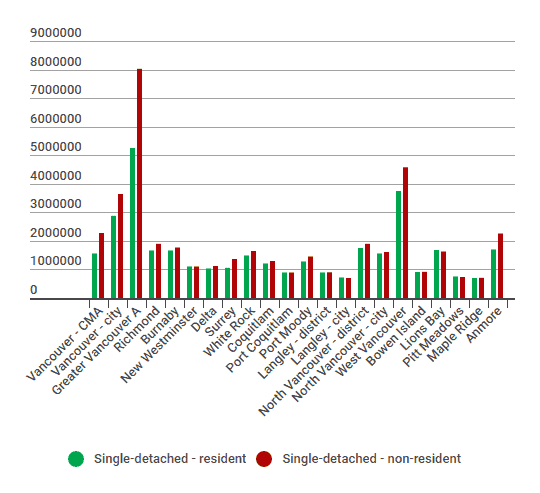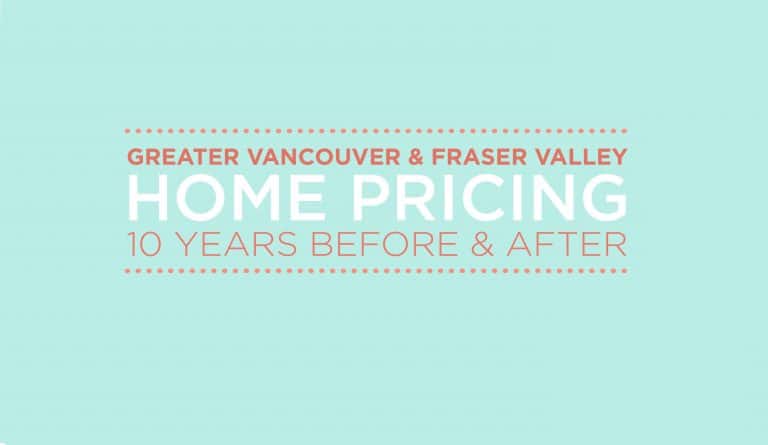Vancouver obscure a Major Market Correction
For years the Real estate industry has been among the most lucrative sector in the world. The sector has made some people who decided to invest in the sector super rich. Over the years the sector has grown tremendously. It is not surprising to see foreign investors pouring millions of dollars in the same industry. In the past real estate in Vancouver, was dominated by the local investors. However, recent stats have shown that the trend is slowly changing with non-resident slowly taking a piece of the real estate pie. These recent findings can be attributed to the hues and cries caused by activists and academics who believed that recent increase in Vancouver properties prices was due to non-resident purchases.

In 2017 research was conducted by Statistics Canada to determine the claims from activist and the academics. In December 2017, the agency released its first poll of data. According to the data provided by Statistics Canada, 7.1 % of the property owned in Vancouver are owned by individuals who do not resident in Canada (nonresidents).
Areas like Sun Peak, Whistler and Strathcona Electoral Area B (15.4 percent), have the highest rate of non-resident ownership. Leading the way is Sun Peak at 17 % non-resident ownership followed by Whistler is at 16% non-resident ownership then Strathcona at 15%. According to a statement by Andy Yang the director of the City Program at Simon Fraser University
“Out of that 16 percent (for Whistler), it’s about 1,900 units that are non-resident occupied,” He adds, “What it really gives to you is the type of marketplace that is a global one … It touches upon the ongoing challenges of housing in Whistler and Sun Peaks as workers in those cities can’t compete with this non-resident marketplace.”
Other areas which have a relatively high number of non-residents include; West Vancouver and Richmond which are 7.1% and 6.5% owned by non-residents respectively. Let’s not forget about popular tourist destination like Tofino, Fernie, and Revelstoke which are 7.5%, 6.6% and 5.2% owned by non-residents respectively.
Data from Statistics Canada also shows that 6% of the homes owned in Vancouver by residents are owned by corporations. For non-resident property, there is a general declined of properties owned by foreign corporations. Instead, most foreign investors set up Canadian Corporation then transfer the property to the Corporation saving millions of dollars in terms of tax
Studies from Canadian Housing Statistics Program (CHSP) show that more than 60% of nonresidents properties are condominium apartments. It is also important to note that these condominium apartments 50% of them are located in City of Vancouver, while 14% in Richmond
How does foreign ownership affect Vancouver Real Estate Industry?
Findings from Statistics Canada, shows that there is a big difference when it comes to the prices of houses owned by non-resident and residents. In Metro Vancouver, the average price of a single-detached home owned by non-resident is worth 2,275,900 while the average price for a single detached home for a resident is worth $1,568,100, which is 45 % lower as compared to homes owned by non –resident.
The same difference is still evident in some other municipalities across Vancouver. For instance, in the City of Vancouver, homes owned by the non-resident are valued at 26% higher than homes owned by residents. For single detached homes owned by non-resident on average are valued at $3,638,500 while for residents their single detached homes on average are valued at $2,882,60

Not only are the values of the non-resident higher but also the sizes of their homes. From the same finding by Statistics Canada shows that non-resident own close to 4,800 sq. feet while for resident there single detached homes are close to 3600 sq. feet which are 32 % smaller than non-resident
The same price differential gap also exists in condominium apartments. In Metro Vancouver there exist a huge differential gap between the resident owned condominium apartment which values at $ 530,800 while non-resident apartments are valued at $692,000 which is 30% higher than those of resident
Elsewhere in the City of Vancouver, non-resident condominium apartment are worth 26% more than resident condominium apartment. On average resident-owned unit is worth $741,000, while for a non-resident-owned unit is worth $930,600, approximately 26 percent more.
It is important to note that even though the value of a non-resident real estate is higher than that of a resident. There is a significant increase in growth of the real estate industry. Findings from the Canadian Real Estate Association Home Price Index show that from January 2005 to November 2017, there has been an increase of 173.7% in the value of properties across Vancouver
However they are gaps in the study says Andy Yan, director of SFU’s City Program. He emphasizes that the study did not take into account cover presales, which can be subjected to flipping. Flipping a unit before the completion of a unit allows non-residents to take advantage of Canada tax system and avoid foreign buyers’ tax. This existing gap has made presales especially in Vancouver to double
CONCLUSION
It is expected that the prices of real estate properties in Vancouver will continue to grow as foreign ownership continues to grow. Steve Zaretsky, Vancouver realtor explains why the real estate industry is expected to grow in the coming years
“There’s a strong belief that prices will go up and they’ll continue to go up because foreign ownership is predominant,” he said. “So as long as that narrative continues to play out, it allows locals to speculate on higher prices.”
So if you are an investor who is looking where to invest his money. Vancouver real estate is the ideal place for both local and foreign investors. With the industry expected to grow by more than 20 %, Vancouver real estate sounds like a sound investment decision.


